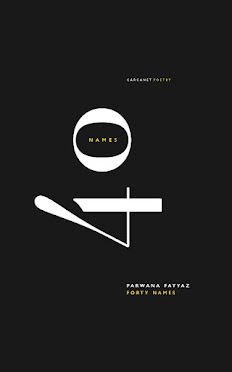Editor’s note: Parwana Fayyaz’s highly-anticipated debut was released earlier this year, titled ‘Forty Names’ after a gorgeous poem (first published in PN Review) that won the Forward Prize for Best Single Poem in 2019. In this conversation with the Asian Books Blog, she unravels the many strands of tradition and translation woven into the fabric of this collection. This short interview took place over email, and has been lightly edited for clarity.
Congratulations, once again, on the publication of Forty Names! I read all the poems in one sitting yesterday, and the most distinctive thing about these poems, to me, is the striking narrative voice that threads through them. At times, this voice seems to belong both to the child in the poems, listening to some of these stories for the first time, and to you today, re-telling them many years on. How did these poems take shape, and how long did that process take?





